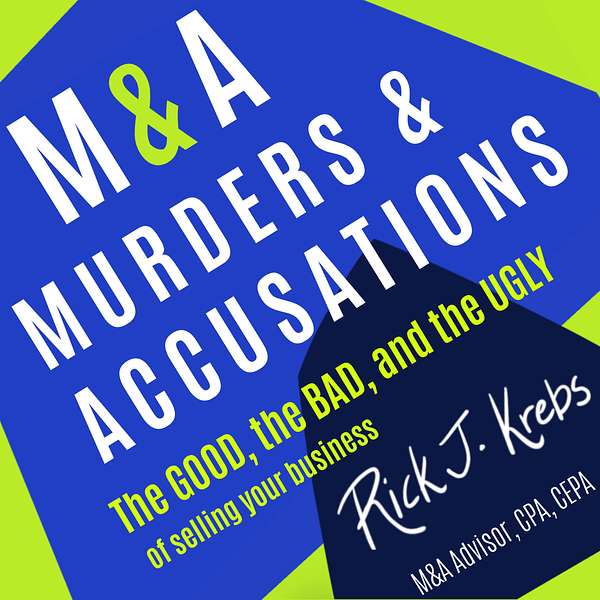
M&A Murders & Accusations: The Good the Bad and The Ugly of Selling Your Business
M&A Murders & Accusations: The Good, the Bad, and The Ugly of Selling Your Business! We dig deep into what you MUST know when selling your business. Learn how to NOT kill the sale of your business. Rick J. Krebs, the mastermind M&A Advisor (Mergers & Acquisitions, not Murders and Accusations) and expert at selling businesses, has transformed the lives of countless business owners by helping them secure the right buyer at the right price. You have only one chance to sell your business and this podcast will provide the vital information you need to know.
Brace yourself for mind-blowing discussions with industry experts and business owners who have already sold their businesses.
M&A Murders & Accusations: The Good the Bad and The Ugly of Selling Your Business
Survive the Sale: The 7 Deadly Killers of Selling a Business with Guest Peter Christman
There are 7 things that can definitely kill the sale of your business. You will learn how to avoid these and NOT kill the sale of your business. We get into the ugly side of things here with over 50 years of combined M&A experience, Peter Christman and myself share horror stories we've seen. Get better prepared to sell your business by listening in to this episode.
To reach out to Peter click below:
Peter Christman
Visit us at:
Bsalesgroup.com,
DesignMySale.com,
